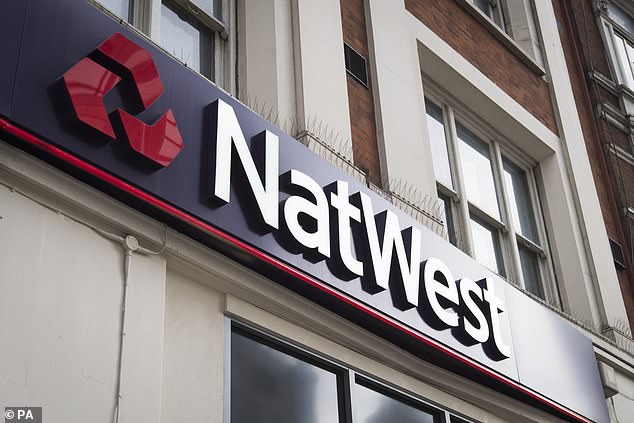The Daily Observer London Desk: Reporter- Victoria Smith
Crisis hit NatWest has started the year with a bang, gobbling up more current account switchers than any other bank in a rare spot of good news for the bank.
In the first three months’ of this year, NatWest attracted 45,651 more switchers than it lost via the official current account switching service (CASS).
The next best performing bank was HSBC which made net gains of 28,486. RBS, which is part of the NatWest banking group also attracted 4,165 more switchers than it lost.
In the first three months’ of this year, NatWest attracted 45,651 more switchers than it lost via the official current account switching service (CASS).
NatWest is currently engulfed in a full-blown crisis after its chief executive, Dame Alison Rose, was forced to quit over briefing the BBC about Nigel Farage’s ‘debanking’.
RBS’ switching figures includes Coutts, the bank at the heart of the Farage debacle.
The bank charges its UK customer’s £900 a year for the privilege of holding the account.
Whether or not the Farage debacle impacts the number of NatWest’s banking customers remains to be seen.
But, latest drama aside, NatWest’s switching success in the early months’ of 2023 is likely largely down to its £200 switching incentive, which it introduced in February.
The offer remains open to this day. Anyone switching their main account to the bank’s Reward account or Select account is eligible if they log into mobile banking and pay in at least £1,250.
| Provider | Gains | Losses | Net gains |
|---|---|---|---|
| NatWest | 71,590 | 25,939 | 45,651 |
| HSBC | 74,416 | 45,930 | 28,486 |
| Lloyds Bank | 48,163 | 37,204 | 10,959 |
| RBS | 11,686 | 7,521 | 4,165 |
| Santander | 38,821 | 34,729 | 4,092 |
However, at present it faces competition from TSB, First Direct, Halifax and RBS, all of which are offering cash in exchange for switching.
TSB and RBS are offering £200 for switching, First Direct continues to pay £170, while Halifax recently launched a £150 offer.
‘You have to question whether paying £200 a time to gain new customers is a cost effective marketing strategy, particularly if growing numbers are walking in the front door and within a couple of months walking out the back into the arms of a rival bank offering the next big cash handout.’
| Provider | Gains | Losses | Net gains |
|---|---|---|---|
| Nationwide | 9,899 | 44,158 | -34,259 |
| Halifax | 17,134 | 38,456 | -21,322 |
| Barclays | 6,873 | 25,528 | -18,655 |
| Monzo | 10,182 | 17,817 | -7,635 |
| Virgin Money | 3,096 | 9.336 | -6,240 |
Hagger’s cynicism is perhaps best showcased by Nationwide Building Society. It hemorrhaged customers in the first three months of this year, losing 34,259 more than it gained in switches.
This is in stark contrast to the previous three months, during which Britain’s biggest building society attracted a record number of bank account switchers, whilst it was paying £200 to new joiners.
In total, Nationwide gained almost 147,000 switchers in the final three months of last year – the highest ever recorded over a three month period by the Current Account Switching Service.
Hagger adds: ‘It’s interesting to see Nationwide lose a net 34,259 customers in the latest quarter once its £200 incentive expired – in the previous quarter it piled on an astonishing 111,941 net new accounts.
‘I think it shows that some people will have taken the free cash from the UK’s biggest mutual and then switched again to the next big cash handout – the switching bribes are what is fuelling the increase in switching numbers but it would appear that people are not staying put.
‘There’s an increasing number of serial switchers seeking out extra cash to help try and plug holes in household budgets due to the financial squeeze.’
More people are switching
Between April and June 2023, the CASS e saw a 76 per cent increase in the number of switches on the same period last year.
A total of 338,194 switches took place during the last three months compared to the 191,777 in the same period in 2022.
The upward switching trend can be seen over the full year too, with the service facilitating 1,277,484 switches between 1 July 2022 and 30 June 2023.
This figure represents a 50 per cent year-on-year increase on the 850,243 switches that occurred between July 2021 and June 2022.



